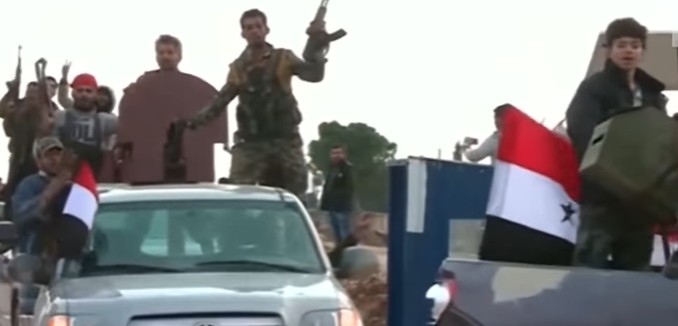The Islamic Republic of Iran is using the crisis in the northern Syrian enclave of Afrin to tighten its grip on the country, The Israel Project CEO and President, Joshua S. Block, warned in an op-ed published in the New York Daily News on Thursday.
“One area in Syria…has so far been immune to the growing Iranian presence in the country. U.S.-backed Kurdish forces kept northern Syria ‘Iran-free,’ Block wrote. He observed, however, that “Iran now has a golden opportunity, for the first time, to penetrate the Kurdish-operated ‘no-go-zone’ in the north of the country.”
The Turkish government in late January launched a ground incursion into the Kurdish enclave in Syria known as Afrin to dismantle positions along the border controlled by the Kurdish militia YPG. Ankara charges that the group is a partner organization of the outlawed terrorist organization PKK.
“Concerned by Turkey’s expanding Syria offensive, the regime in Damascus announced a week ago that it would provide reinforcement to Kurdish militia,” Block explained. On Tuesday, the first pro-regime fighters entered the region, exchanging fire with the Turkish military.
“Determined to expand its influence in the region, specifically in Syria,” Block wrote, “the regime in Tehran has instructed Iranian-backed Shia militia forces to march on Afrin together with other pro-regime forces.”
Since the outbreak of the civil war in Syria in 2011, the Islamic Republic has been an important lifeline for the embattled regime of Bashar al Assad. According to Block “between 6,500 and 9,200 Iranian Revolutionary Guard Corps (IRGC) troops and Iranian paramilitary personnel” are stationed in Syria, which are “directly implicated in mass-murder.”
A recent editorial in The New York Times called for building a legal case that Syrian President Bashar al-Assad and his allies Russian and Iran committed war crimes. The editorial asserted that “Russian leaders, who help keep Mr. Assad in power with political support and military air assets, and Iranian leaders, who provide tactical advice and ground troops” should receive the same scrutiny as their client, Assad.
The consequences of an ever-growing Iranian presence in Syria are dire. Last weekend, an Iranian drone entered Israeli airspace and triggered a series of military escalations. The Israeli government has stated time and again that it will not tolerate a permanent Iranian presence in Syria.
Explaining the significance of recent events, Block stated that “The Kurdish minority, which is spread across four different countries and faces brutal oppression in Iran, has so far been a reliable counter-force to Iranian influence, in northern Syria.” The battle of Afrin, however, has left the door wide open for Iranian-backed militia.
“The conflict has morphed from a local confrontation between Turkish and Kurdish forces into a crisis that threatens regional stability, spearheaded by Assad and Iran,” Block warned, observing that “If the U.S. is serious about confronting Iranian aggression, Afrin would be a good place to start.”
[Photo: Financial Times / YouTube]




